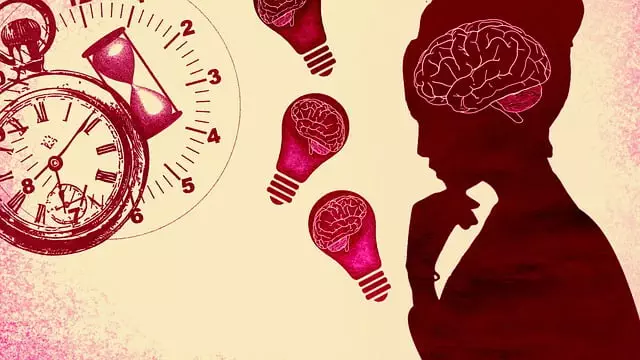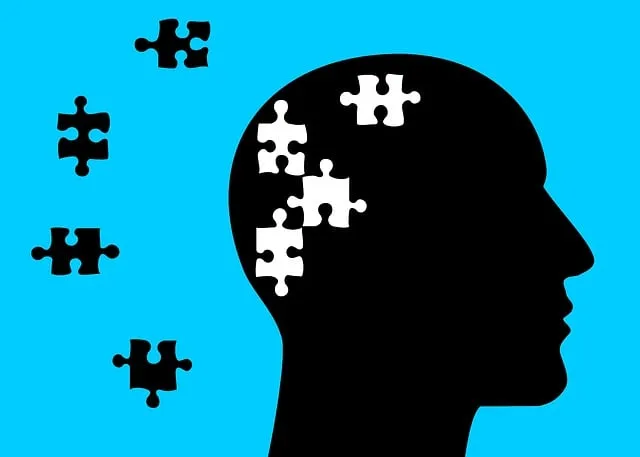Emotional Intelligence (EI), recognized by organizations like Kaiser Permanente, is crucial for personal and professional development. Their Boulder mental health resources offer tailored counseling services focusing on self-awareness, relationship management, and conflict resolution. By integrating practices such as Mindfulness Meditation and Resilience Building, individuals can improve life satisfaction, relationships, and stress management. Active listening, a key EI component, fosters deeper understanding and strengthens communities. Reaching out to the Kaiser Permanente mental health number in Boulder provides support, reduces stigma, and encourages open dialogue for better mental wellness.
Emotional intelligence (EI) is a powerful tool for enhancing personal and professional well-being, as evidenced by Kaiser Permanente’s commitment to mental health resources. This article explores strategies for building EI, drawing insights from top therapy centers in Boulder. We delve into understanding EI, its profound impact on overall health, and practical techniques like cultivating self-awareness, enhancing social awareness and empathy, and mastering active listening. Discover how these principles can transform your life, mirroring the support offered by Kaiser Permanente’s mental health services.
- Understanding Emotional Intelligence: Unlocking the Kaiser Permanente Mental Health Resource
- The Impact of Emotional Intelligence on Well-being
- Strategies for Developing Self-Awareness at Boulder's Top Therapy Centers
- Enhancing Social Awareness and Empathy in Everyday Life
- Practicing Active Listening: A Powerful Tool for Effective Communication
Understanding Emotional Intelligence: Unlocking the Kaiser Permanente Mental Health Resource

Emotional intelligence (EI) is a vital resource for personal and professional growth, fostering better relationships, effective communication, and strong mental well-being. It’s no wonder that organizations like Kaiser Permanente recognize its importance, offering valuable mental health resources to their members in Boulder and beyond. The Kaiser Permanente mental health number serves as a direct line to support, providing access to counseling services and expertise tailored to various emotional and psychological needs.
By tapping into these resources, individuals can explore and develop key aspects of EI, such as self-awareness, self-management, social awareness, relationship management, and conflict resolution techniques. Empathy building strategies and social skills training are among the tools offered, empowering people to navigate complex interpersonal dynamics with greater ease. This holistic approach to mental health not only addresses immediate concerns but also equips individuals with lifelong skills for emotional resilience and effective interaction in all aspects of life.
The Impact of Emotional Intelligence on Well-being

Emotional intelligence (EQ) plays a pivotal role in enhancing overall well-being and mental health. Studies have shown that individuals with higher EQ tend to experience greater life satisfaction, improved relationships, and better stress management skills. This is particularly relevant in today’s fast-paced world where mental health concerns are on the rise. Organizations like Kaiser Permanente recognize the importance of emotional intelligence in their Healthcare Provider Cultural Competency Training programs, aiming to equip professionals with tools to navigate complex patient interactions.
By fostering EQ through practices such as Mindfulness Meditation and Resilience Building, individuals can develop a deeper understanding of their emotions and those around them. This, in turn, leads to increased empathy, effective communication, and improved problem-solving abilities. Such skills are not only beneficial for personal relationships but also contribute to more compassionate and culturally sensitive healthcare environments, where patients feel understood and supported.
Strategies for Developing Self-Awareness at Boulder's Top Therapy Centers

At Boulder’s leading therapy centers, a key component of emotional intelligence building is cultivating self-awareness. This involves recognizing and understanding one’s own emotions, strengths, weaknesses, and their impact on thoughts and behaviors. Therapists often employ various strategies to help individuals develop this crucial skill. One common approach is mindfulness practices, such as meditation and deep breathing exercises, which encourage clients to focus on the present moment and observe their emotional responses without judgment.
Additionally, keeping a journal can be an effective tool for self-reflection and tracking one’s emotions over time. By regularly documenting their feelings and experiences, individuals gain valuable insights into their emotional patterns and triggers. This process fosters a deeper understanding of oneself, enabling better management of emotional reactions and promoting overall mental wellness. At Kaiser Permanente mental health number Boulder, therapists may also utilize psychological assessments to provide objective feedback on an individual’s emotional intelligence and guide personalized strategies for inner strength development.
Enhancing Social Awareness and Empathy in Everyday Life

Incorporating emotional intelligence into daily routines can significantly enhance our interactions and overall well-being. One effective strategy is cultivating social awareness and empathy, skills that are crucial for building strong relationships and fostering a sense of community. By being attuned to the emotions of others, we can offer more meaningful support and create deeper connections in both personal and professional spheres. This heightened awareness allows us to recognize subtle cues and respond with compassion, making our interactions more positive and productive.
For instance, practicing active listening during conversations enables us to understand others’ perspectives and emotions better. This skill is easily accessible through self-care practices like mindfulness meditation, which has been shown to improve emotional intelligence. Regularly engaging in these activities can help manage mood and enhance emotional regulation, enabling individuals to navigate challenging situations with greater ease. Additionally, being empathetic promotes a culture of support within communities, as it encourages people to connect on a deeper level, mirroring the approachability and care offered by organizations like Kaiser Permanente’s mental health services in Boulder.
Practicing Active Listening: A Powerful Tool for Effective Communication

Active listening is a vital skill to cultivate when it comes to emotional intelligence and effective communication. It’s more than just hearing someone speak; it involves fully concentrating on the speaker, understanding their message, and providing feedback that shows your engagement. This simple yet powerful tool can significantly enhance relationships, whether personal or professional. In today’s fast-paced world, where busy schedules often lead to hurried conversations, making time for active listening can be transformative.
For those seeking support, reaching out to healthcare providers like Kaiser Permanente in Boulder can be a step towards reducing the stigma associated with mental illness. Trained professionals are equipped not only to offer guidance but also to actively listen, fostering an environment where individuals feel heard and understood. This approach not only boosts confidence but also encourages open dialogue, which is essential for addressing various mental health concerns. Effective communication, built on active listening, can be a game-changer in navigating the complex landscape of mental wellness.
Emotional intelligence is a powerful tool for enhancing well-being and fostering meaningful connections. By understanding and developing self-awareness, social awareness, and empathy, individuals can navigate relationships and challenges with greater resilience. The resources offered by Kaiser Permanente mental health services in Boulder provide valuable insights and strategies to embark on this journey of emotional growth. Through practical techniques like active listening, individuals can revolutionize their communication, build stronger bonds, and create a more fulfilling life. Remember that emotional intelligence is a skill that can be cultivated, making it an accessible and rewarding path for everyone.






